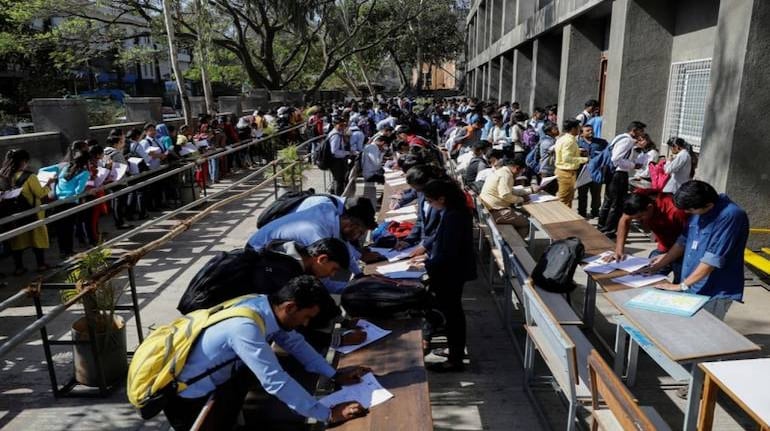



Kavita Dwivedi and Badri Narayanan Gopalakrishnan
One of the key industries that set the Indian economy into the growth path in the last decade has been offshoring. With COVID-19-induced lockdowns in different parts of the world for more than two months now, Indian offshoring industry needs to strategise and realign its operations.
Experts have been predicting a structural and fundamental change in the kind of jobs available in India within the offshoring sector by 2022. Industry 4.0, increased innovation, automation, robotics, increased data protection laws such as General Data Protection Regulation (GDPR), growing demand for artificial intelligence (AI) and machine learning (ML) would lead to these changes. However, now with the COVID-19 impact, the way the world operates is going to witness a change.
The Government of India together with industry bodies and leaders who shaped India’s offshoring industry and startups can look at using this challenge as an opportunity, form strategies to both import foreign companies and jobs to India and also export jobs after the pandemic. This gives our political and industrial leaders some lead time to attract MNC’s to come and set up their business operations in areas of IT, ITES, banking, telecom, healthcare, education, travel and tourism, FMCGs, etc.
It may be early days, but India is emerging relatively positive on the world stage during this COVID era. As a nation, we are collectively fighting the virus with a positive intent and discipline, serving as an example to rest of the world. This positivity can help us in creating a favourable environment for industries to come and expand in India.
The Indian offshoring industry bigwigs such as Infosys, TCS, Cognizant, and Capgemini, would need to redefine the way they operate. This is the time to reskill their workforce and deploy them in the new-age jobs. India’s $150 billion outsourcing industry was slowly hitting the tipping point even before COVID-19. The industry lauded for its ability to put India on the map as a destination for high-quality, low-cost technology skills, fast turnaround and for being an engine of wealth and job creation would need to rejig its way and start a second wave of new-age skilled jobs in India.
According to a report by Gartner, more than 80 percent of logistics leaders globally planned to increase their outsourcing budget by more than 5 percent by 2020. One of the reasons for this is that outsourcing their logistics helped them a lot by meeting or exceeding the end-to-end (E2E) supply chain and overall business objectives.
India remains the leading country to outsource as per Tholons Top 50 Digital Nations and AT Kearney Global Services Location Index of 2019. The country also has 14 super cities listed in the Tholons report. It’s time for central, state and industry leadership to plan and market these cities as preferred destinations for such outsourcing operations. India’s 100 Smart Cities project should help us in identifying the cities that can be marketed as top offshoring destinations. This will help boost our economy both on the financial side and also will give some respite to the problem of unemployment.
Establishments of such offices/extended offices in Tier-II cities will not only provide jobs to our educated youth, but also open up job/business opportunities for lower middle-class in these cities.
The High Level Strategic Group (HLSG) set up by the Centre estimates a net workforce shortfall of 32-39 million by 2020 in developed countries. The same report goes on to assert that contribution of remote services alone, which is the main focus of this report, will be $133-315 billion of additional revenue flowing into the country and the addition of 10-24 million jobs (direct and indirect) by 2020.
It also adds that importing customers into India (medical tourism, educational services, leisure tourism) could add $6-50 billion in revenue and create 10-48 million jobs by 2020. The HLSG estimates that through remote services and the importation of customers India could enhance year-to-year GDP growth by up to 1.5 percent over current growth rates, most of which (~80-85 percent) would be through remote services.
This is the right time for the government, industry bodies and leaders of offshoring and IT industry to form a strategy to position India as the most favourable destination for offshoring by providing ease of business, marketing it the right way and training Indians on advanced/skill sets that can support the growth trajectory and optimise costs of Industry 4.0 for global companies.
A downside that remains, however, is that offshoring industry may be heavily hit by the global recession.
Kavita Dwivedi is Head Data Science, Infinite Sum Modeling, and Badri Narayanan Gopalakrishnan is Co-Founder Director, Infinite Sum Modeling. Views are personal.

Discover the latest Business News, Sensex, and Nifty updates. Obtain Personal Finance insights, tax queries, and expert opinions on Moneycontrol or download the Moneycontrol App to stay updated!
Find the best of Al News in one place, specially curated for you every weekend.
Stay on top of the latest tech trends and biggest startup news.